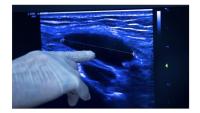Clinical Divisions
Each of our operating rooms is staffed by highly specialized anesthesia faculty who concentrate their clinical time, research, and expertise in a particular area. The operating rooms are arranged geographically by surgical subspecialty. There are three important advantages to this specialized arrangement. First, our patients receive their anesthetic care from clinicians with extensive experience in the procedures they are having, and they understand and will respond to their concerns. Second, it encourages a work climate of mutual trust, respect, and understanding between surgeons or proceduralists and the anesthesiologists. These relationships grow out of working together regularly and appreciating the other's needs. Finally, our residents and fellows train with faculty who have maximal expertise, knowledge, and confidence in their clinical areas. Excellence in clinical care is an essential mission of the Department of Anesthesiology, and a primary goal of our education program is to train residents to be first-class attendings, whether in private practice or in an academic training institution.
The role of anesthesiologists is not limited to operating rooms. More and more, anesthesiologists are asked to practice outside the OR and play key roles in many areas of the hospital. We direct the Surgical, Cardiothoracic and the Heart Hospital Intensive Care Units, the Multidisciplinary Pain Fellowship Program, and the Post Anesthesia Care Units, and we are involved in off-site areas such as the cardiac catheterization laboratory, MRI, endoscopy, endovascular, neurovascular, and other radiologic areas. Our involvement supports our belief that the responsibility for anesthetic management encompasses patient care throughout the hospital and outpatient experience.








